Greco-Roman World Cup lineups announced
Thursday, October 27, 2022 - 13:02 By Eric Olanowski

BAKU, Azerbaijan (October 18) --- United World Wrestling has announced the entries for the 2022 Greco-Roman World Cup, which will take place in Baku, Azerbaijan, November 5-6.
The two-day dual meet competition will feature the top five teams from the 2022 World Championships, and for the first time ever, an All-World team comprised of the highest-placing athletes from Belgrade whose teams finished outside of the top five in the team standings.
The two-day event will be split into two groups.
Group A will feature the 1st, 4th, and 5th place teams from Belgrade–Turkey, Iran, and Kyrgyzstan, respectively.
Group B will house the 2nd, 3rd and 6th place teams from Worlds–Azerbaijan, Serbia and the All-World team, respectively.
On Saturday, November 5, each team will compete against the other pair of nations in their groups to determine the top two teams.
Session One (10:00): TUR vs. IRI, AZE vs. SRB
Session Two (17:00): IRI vs. KGZ, SRB vs. All-World
Session Three (19:30): TUR vs. KGZ, AZE vs. All-World
Then, on Sunday, November 6, the teams with the best records from Group A and Group B will wrestle for the Greco-Roman World Cup team title, while the teams with the second-best record will square off in the 3rd-4th place match.
Session One (17:00): 3rd place final matches
Session Two: (18:30): 1st place final matches
The Greco-Roman World Cup will feature an All-World team for the first time ever.
The inaugural All-World team in Baku will consist of nine '22 world medal winners--including four runner-ups and three bronze-medal finishers from Belgrade.
The four silver medalists wrestling on the All-World team are Nugzari TSURTSUMIA (GEO), Leri ABULADZE (GEO), Zoltan LEVAI (HUN) and Jalgasbay BERDIMURATOV (UZB). The trio of bronze-medal finishers on the All-World team are Aidos SULTANGALI (KAZ), Andrii KULYK (UKR) and Mantas KNYSTAUTAS (LTU).
Joni KHETSURIANI, Alex KESSIDIS (SWE) and Nikoloz KAKHELASHVILI (ITA), who finished in fifth place at the World Championships, rounds out the ten-man All-World squad.
Turkey, the reigning Greco-Roman world champions, is bringing arguably the most loaded squad to Baku. They'll be led by world gold medalists Burhan AKBUDAK and Metehan BASAR. Akbudak won his gold in Belgrade, while Basar won world titles in '18 and '19. They are also bringing Selcuk CAN, Yunus BASAR and Ali CENGIZ, who finished with world bronze medals in Serbia.
Eldaniz AZIZLI, the newly-minted two-time world champion, leads the host nation's entries. He'll be joined on Azerbaijan's team by fellow Belgrade medalists Taleh MAMMADOV, Hasrat JAFAROV, Ulvu GANIZADE and Arif NIFTULLAYEV.
Ganizade won silver in Serbia, while Mammadov, Jafarov and Niftullayev bagged bronze medals in Belgrade.
Rafig HUSEYNOV and Sanan SULEYMANOV, who won world gold and silver in Oslo, respectively, are also featured on Azerbaijan's World Cup team.
Serbia showed out at the 2022 World Championships, winning four of the ten Greco-Roman gold medals. They'll bring two of the four world champions--Sebastian NAD and Mate NEMES--to Baku. Ali ARSLAN and Zurabi DATUNASHVILI have elected to sit out of the Greco-Roman World Cup and will be replaced by Nemes/Aleksa ERSKI and Zarko DICKOV, at 72kg and 87kg, respectively.
Iran is sitting their first-team guys and is sending a squad filled with age-group talent. The most notable wrestlers on their team are 2021 senior world champ Aliakbar YOUSOFIAHMADCHALI and 2019 senior world bronze medal winner Ali NEJATI.
Kyrgyzstan is in a similar position as Iran. They'll sit their first teamers and will be without 2022 world champions Zholaman SHARSHENBEKOV and Akzhol MAKHMUDOV. Without their pair of superstars, Kyrgystan will lean on Tokyo Olympian Uzur DZHUZUPBEKOV to lead the team in Baku.
Wrestling in Azerbaijan starts November 5-6 and will be streamed live on www.uww.org or on "The Home of Wrestling,' United World Wrestling's brand new app.
Download the United World Wrestling app: Google Play | Apple App Store
Greco-Roman World Cup Entries:
1. Turkey
55kg - Ekrem OZTURK
55kg - Muhammet Emin CAKIR
60kg - Kerem KAMAL
60kg - Mukremin AKTAS
63kg - Ahmet UYAR
67kg - Murat FIRAT
72kg - Selcuk CAN
77kg - Yunus Emre BASAR
77kg - Yuksel SARICICEK
82kg - Burhan AKBUDAK
87kg - Ali CENGIZ
97kg - Metehan BASAR
97kg - Mustafa OLGUN
130kg - Osman YILDIRIM
2. Azerbaijan
55kg - Eldaniz AZIZLI
55kg - Ibrahim NURULLAYEV
60kg - Murad MAMMADOV
60kg - Nihat Zahid MAMMADLI
63kg - Taleh MAMMADOV
63kg - Ziya BABASHOV
67kg - Hasrat JAFAROV
67kg - Namaz RUSTAMOV
72kg - Ulvu GANIZADE
72kg - Gurban GURBANOV
77kg - Sanan SULEYMANOV
77kg - Eljan MAMMADOV
82kg - Rafig HUSEYNOV
82kg - Nasir HASANOV
87kg - Lachin VALIYEV
87kg - Murad AHMADIYEV
97kg - Arif NIFTULLAYEV
97kg - Zamir MAGOMEDOV
130kg - Sabah Saleh SHARIATI
130kg - Beka KANDELAKI
3. Serbia
55kg - Sabolc LOSONC
60kg - Aleksandar BERAROV
60kg Sebastian KOLOMPAR
63kg - Stefan LISCEVIC
63kg - Perica DIMITRIJEVIC
67kg - Sebastian NAD
72kg - Aleksa ERSKI
72kg - Mate NEMES
77kg - Aleksa ILIC
82kg - Milos PEROVIC
82kg - Viktor NEMES
87kg - Zarko DICKOV
97kg - Mihail KAJAIA
130kg - Sabolc HORVAT
4. Iran
55kg - Mohammad Mahdi Meraj JAVAHERI FARID
55kg - Poya Soulat DAD MARZ
60kg - Pouya Mohammad NASERPOUR
60kg - Mehdi Seifollah MOHSEN NEJAD
63kg - Saeid Morad Gholi ESMAEILI LEIVESI
63kg - Iman Hossein Khoon MOHAMMADI
67kg - Hojat Hassan REZAEI
67kg - Seyed Danial Seyed Shamsollah SOHRABI
72kg - Mohammadreza Mahmoud ROSTAMI
72kg - Amir Ali ABDI
77kg - Aref Mozafar HABIBOLLAHI
77kg - Mohammad Reza Hojatollah MOKHTARI
82kg - Mohammadhossein Ebrahim MAHMOODI
82kg - Alireza Azizkhoon MOHMADIPIANI
87kg - Hamidreza Abbas BADKAN
87kg - Abolfazl Ali CHOUBANI
97kg - Ali Ramezanali ABEDIDARZI
97kg - Mehdi Mohammad BALIHAMZEHDEH
130kg - Fardin Shaban HEDAYATI
130kg - Aliakbar Hossein YOUSOFIAHMADCHALI
5. Kyrgyzstan
55kg - Ulan MURATBEK UULU
60kg - Nurmukhammet ABDULLAEV
63kg - Kaly SULAIMANOV
67kg - Khalmurat IBRAGIMOV
72kg - Adilkhan NURLANBEKOV
77kg - Akylbek TALANTBEKOV
82kg - Kalidin ASYKEEV
87kg - Azat SALIDINOV
97kg - Uzur DZHUZUPBEKOV
130kg - Erlan MANATBEKOV
6. All-World
55kg - Nugzari TSURTSUMIA (GEO)
60kg - Aidos SULTANGALI (KAZ)
63kg - Leri ABULADZE (GEO)
67kg - Joni KHETSURIANI (GEO)
72kg - Andrii KULYK (UKR)
77kg - Zoltan LEVAI (HUN)
82kg - Jalgasbay BERDIMURATOV (UZB)
87kg - Turpan Ali Alvievich BISULTANOV (DEN)
97kg - Kiril Milenov MILOV (BUL)
130kg - Mantas KNYSTAUTAS (LTU)

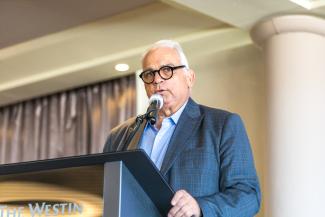
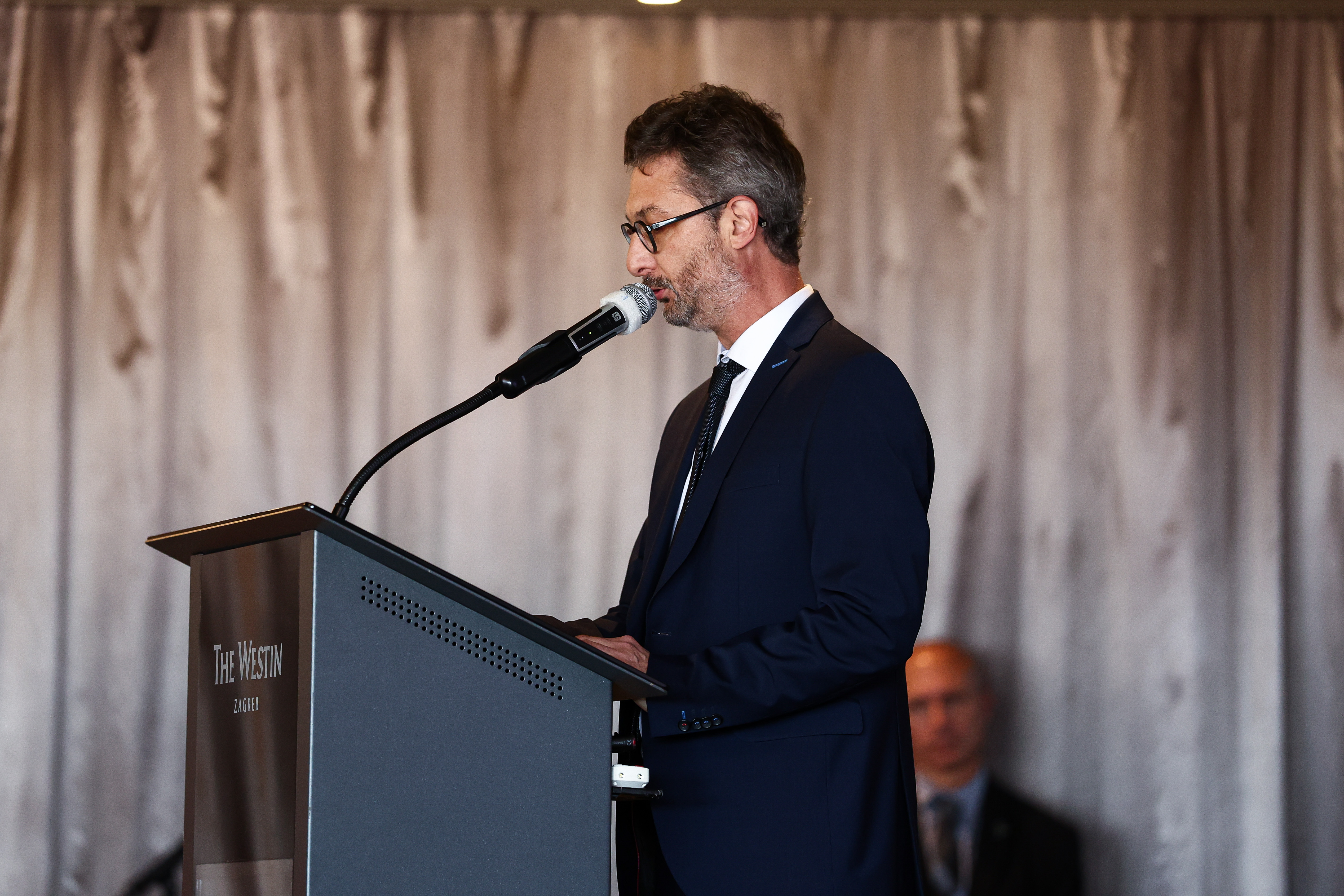 UWW Secretary General Carlos ROY welcomes the delegates to the World Conference. (Photo: United World Wrestling / Jake Kirkman)
UWW Secretary General Carlos ROY welcomes the delegates to the World Conference. (Photo: United World Wrestling / Jake Kirkman)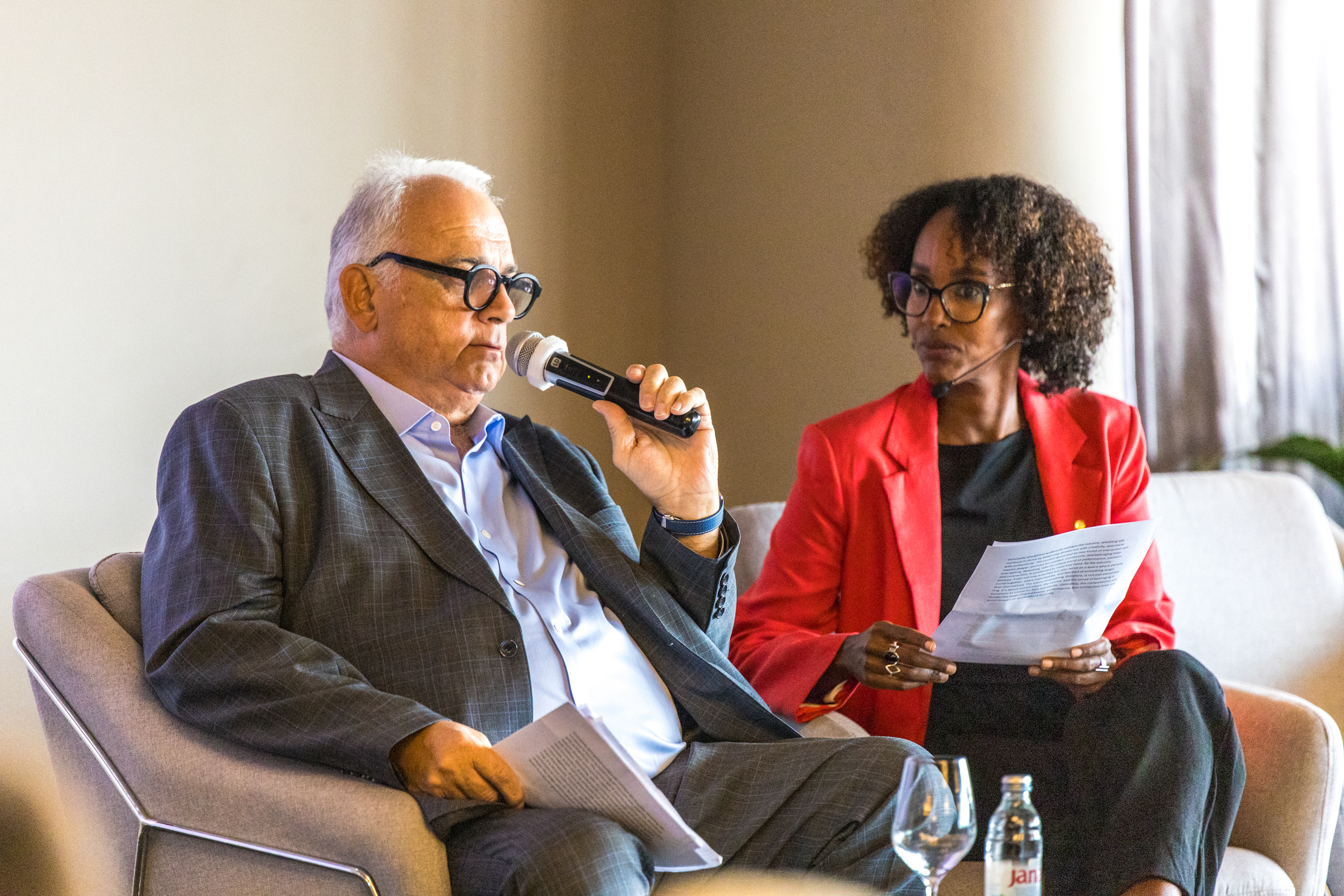 Nenad LALOVIC in a Q/A session with UWW Development Director Deqa NIAMKEY.
Nenad LALOVIC in a Q/A session with UWW Development Director Deqa NIAMKEY.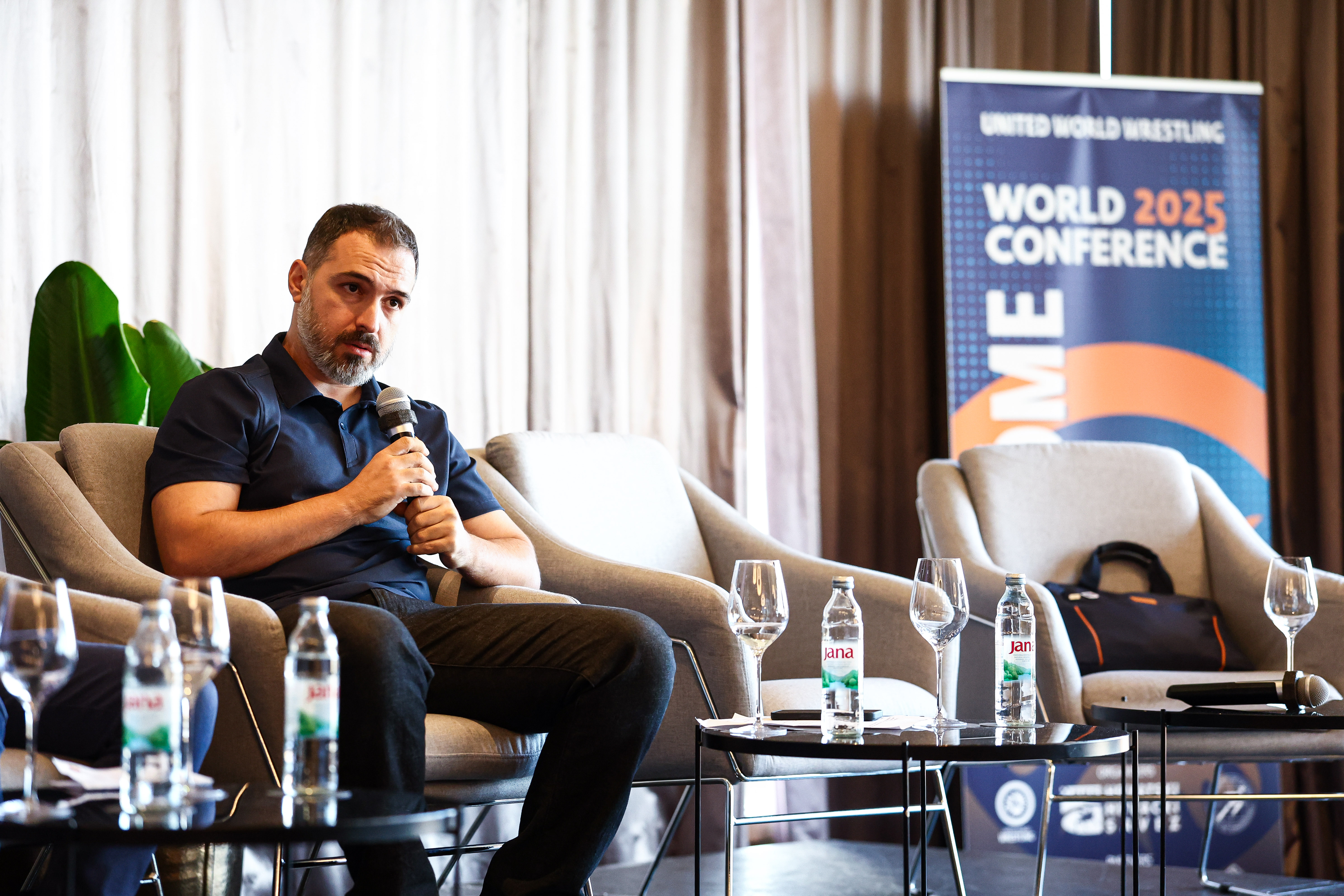 UWW Associated Styles Manager of UWW Onur SIMSEK.
UWW Associated Styles Manager of UWW Onur SIMSEK.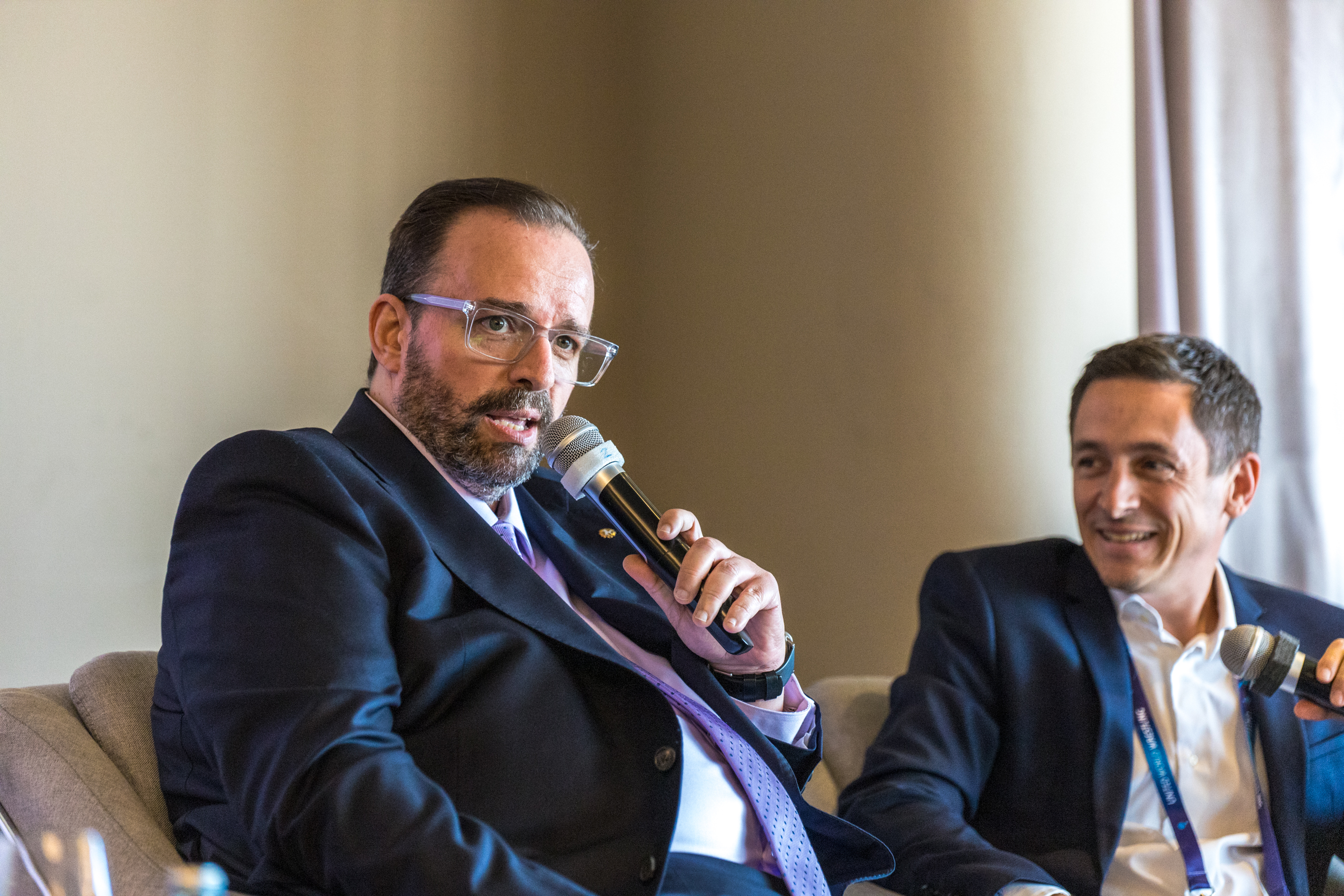 UWW Beach Wrestling Committee President Pedro SILVA.
UWW Beach Wrestling Committee President Pedro SILVA.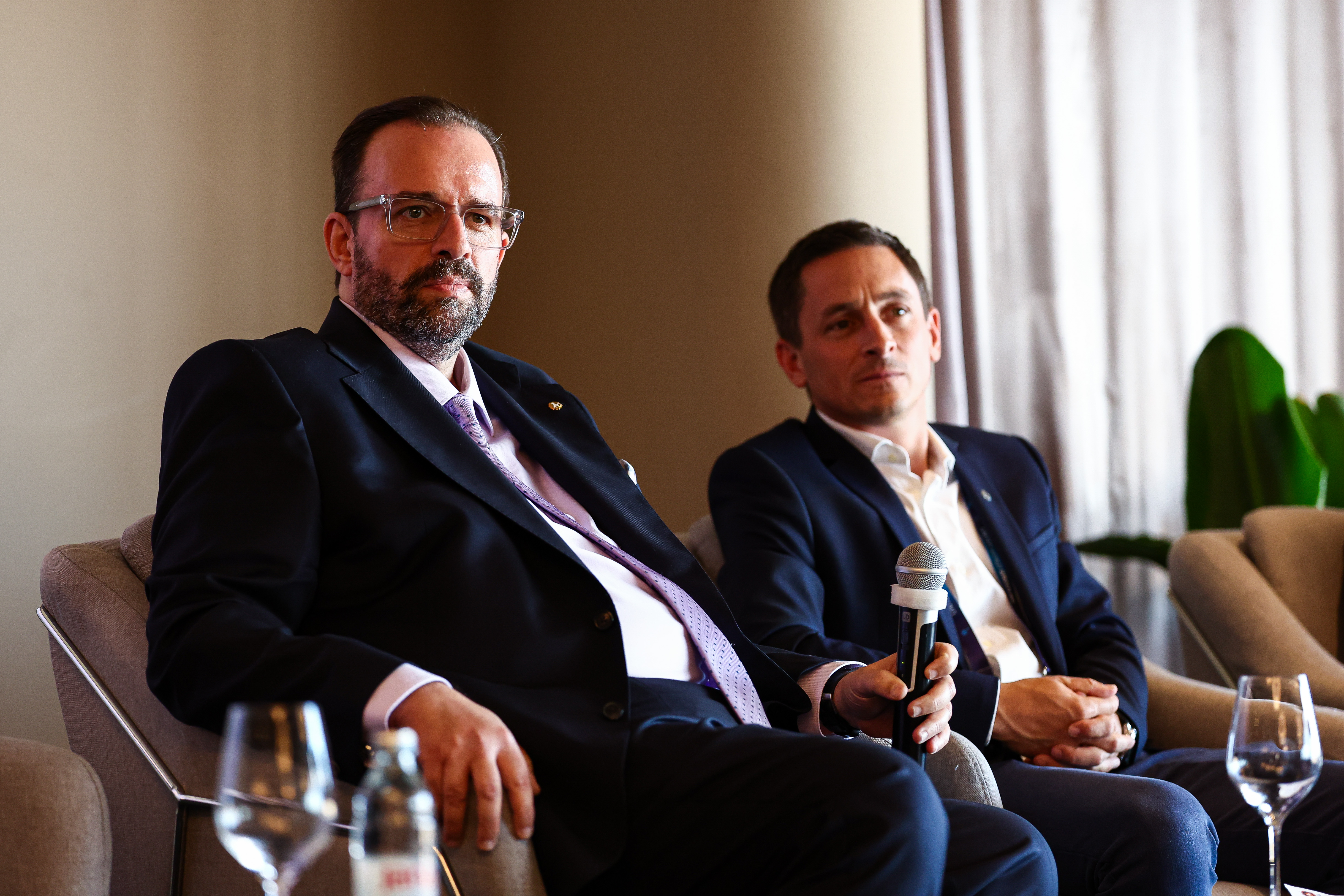 Pedro SILVA, left, and UWW Sports Director Jean-Daniel REY. (Photo: United World Wrestling / Jake Kirkman)
Pedro SILVA, left, and UWW Sports Director Jean-Daniel REY. (Photo: United World Wrestling / Jake Kirkman)
Share your thoughts.
Comments